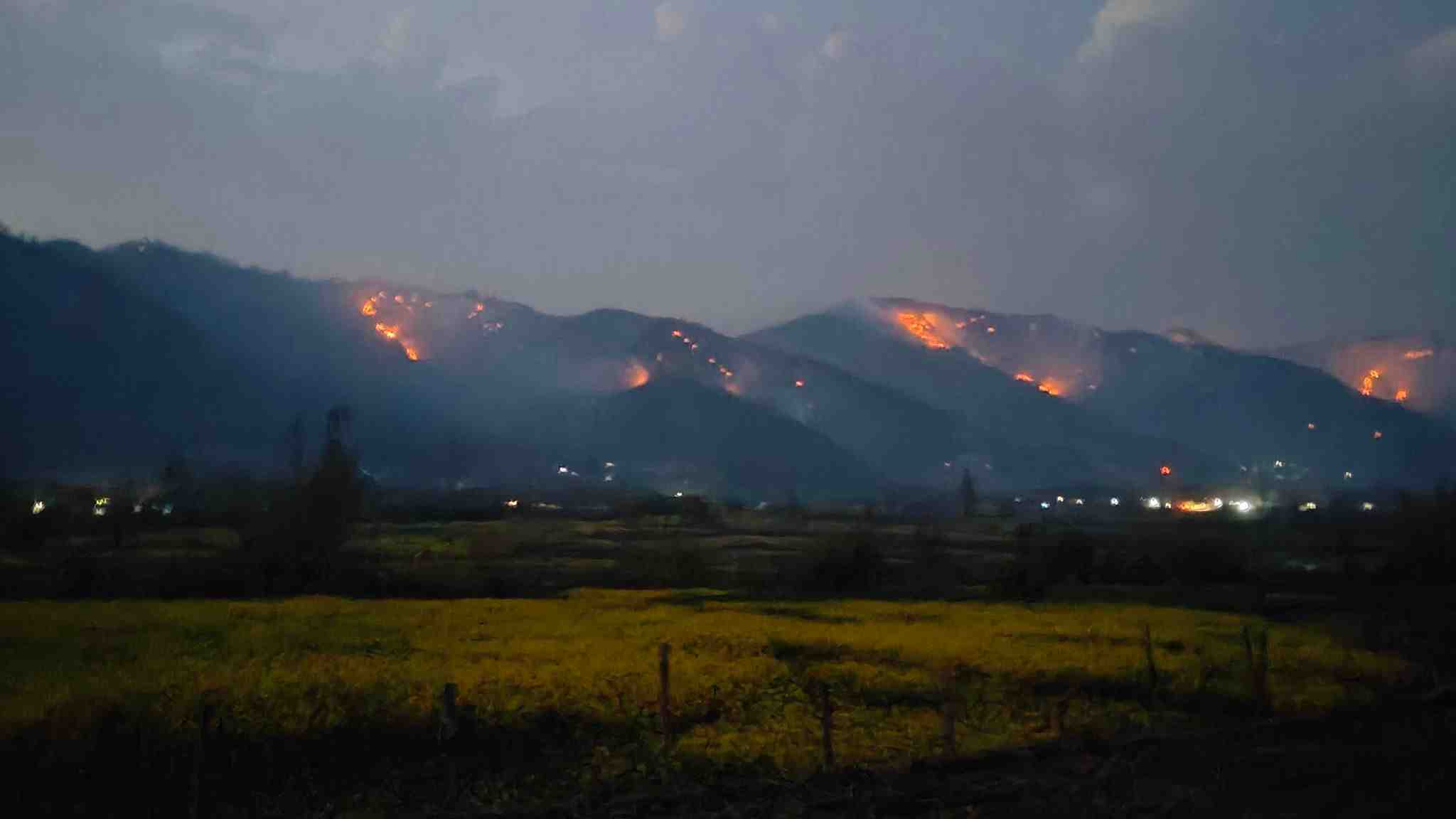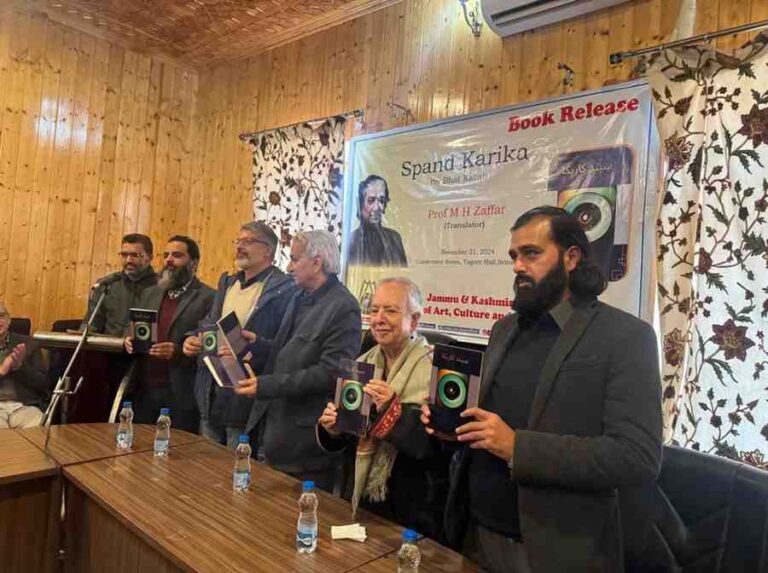Kashmir Forest Fires Expose Lack of Equipment, Safety Gear for Frontline Workers

As forest fires continue to engulf large parts of Kashmir, the crisis has laid bare a worrying reality — frontline workers from the Forest, Wildlife, and allied departments are battling the flames with little more than sticks, spades, and their bare hands. With no access to modern firefighting equipment or basic protective gear, these workers are risking their lives to protect the region’s fragile forests.
The Valley has witnessed a sharp rise in forest fires in recent weeks, fuelled by prolonged dry weather, rising temperatures, and unregulated camping and human activity. From Lidder and Kokernag to Shangus and Tral, large swathes of forest land have been affected, resulting in extensive damage to biodiversity and green cover.
But the firefighting response has been alarmingly underprepared. Employees tasked with controlling the flames say they have no specialised tools — not even gloves, helmets, or fire-resistant clothing. “We don’t have any equipment for firefighting,” said a group of low-rank employees who wished to remain anonymous. “We are handed sticks and spades and told to stop the fire. Sometimes, not even that.”
One casual labourer shared a particularly harrowing experience: “While everyone was celebrating Eid, we were in the jungles, fighting fires through the night. We weren’t given gloves, jackets or even proper shoes. We risk our lives every time, and yet our wages are often delayed for months.”
Besides the Forest and Wildlife departments, workers from the Social Forestry Department and Forest Protection Force (FPF) have also been actively participating in firefighting efforts. But the lack of proper tools and safety protocols has only made the situation more difficult.
A senior forest official, acknowledging the severe gaps, said: “We are facing an acute shortage of equipment. We don’t even have a single fire extinguisher in some divisions.” He listed the essential firefighting tools still missing, including fire beaters, fire hooks, fire blankets, gum boots, fire-resistant suits, gloves, breathing apparatus, water hoses, and fire suppression tools.
Despite the challenges, many of these workers continue to show up, driven by a sense of duty and love for nature. Local volunteers have also joined in, lending a helping hand during major fires, but the absence of trained personnel and proper safety measures only increases the risk of injury and exhaustion.
Chief Conservator of Forests, Irfan Rasool, stated that some basic tools are provided and said, “A spade is quite effective in preventing fire from spreading.” However, he also admitted that casual labourers often go without essential safety gear such as fire jackets, gloves, and boots — essentials in any firefighting scenario.
The ongoing situation calls for urgent government attention. Experts say a robust and well-funded forest fire control mechanism is the need of the hour. This includes the procurement of modern firefighting tools, training for frontline workers, timely disbursal of salaries, and proper safety equipment to prevent avoidable injuries and fatalities.
As the fires continue to blaze and the forests of Kashmir suffer irreversible damage, the bravery of these under-equipped workers is commendable — but it should not come at the cost of their safety or dignity.
You Might Also Like:
Kashmir Tribals Celebrate Waqf Bill Passage, Hail Modi Government’s Land Rights Reform
Fans in Shock! Russell Brand Officially Charged with Rape and Sexual Assault in the UK
NC MP Aga Ruhullah Mehdi Slams Waqf Bill Process, Says Muslims Silenced in Parliament





